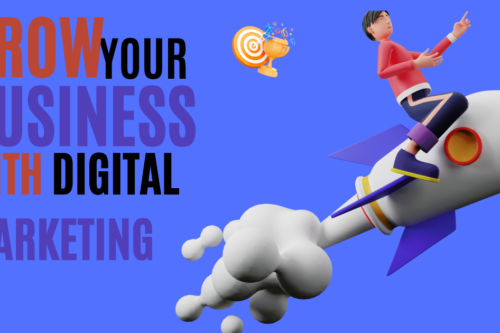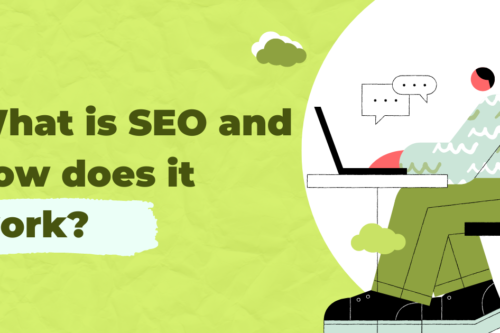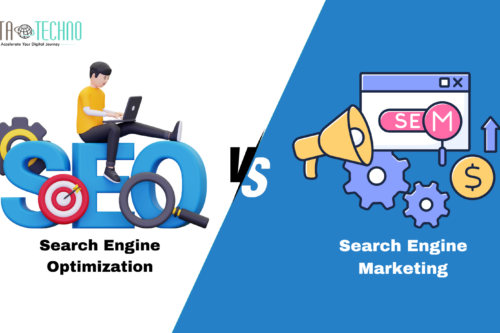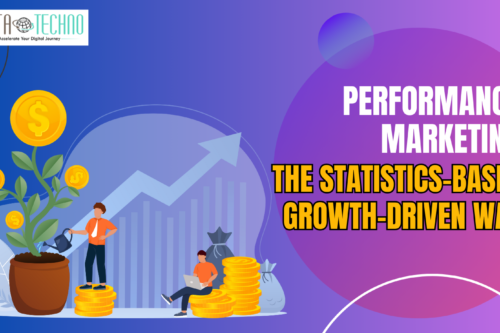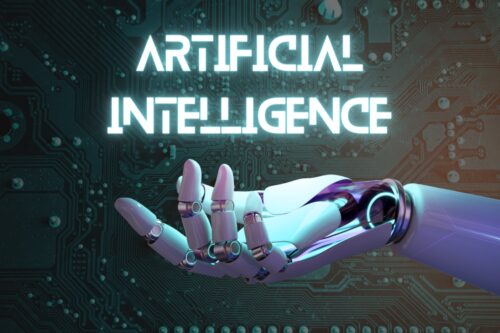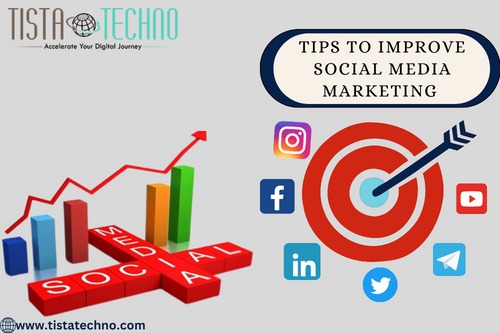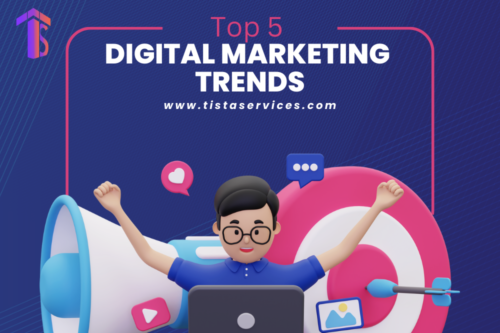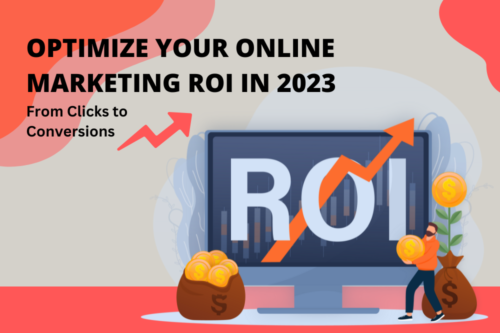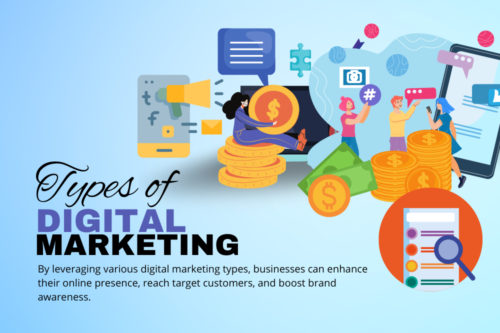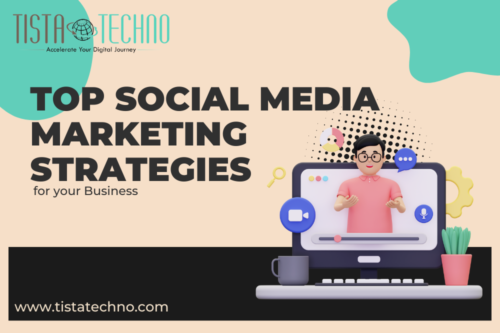Digital marketing refers to the strategic use of digital channels and technologies to promote products, services, or brands to a targeted audience. In essence, digital marketing encompasses all online efforts aimed at reaching and engaging potential customers, driving traffic, and generating leads or sales. From search engine optimization (SEO) and social media marketing to email campaigns and content creation, digital marketing leverages various platforms to deliver tailored messages and experiences to consumers.
Unlike traditional marketing methods, digital marketing offers unparalleled reach, targeting capabilities, and measurability, allowing businesses to track and analyze the effectiveness of their campaigns in real-time. In essence, digital marketing is about leveraging the power of the internet and digital technologies to connect with audiences, build brand awareness, and drive business growth in today’s digital age.
Importance of Digital Marketing
The advantages of digital marketing underscore its paramount importance in today’s business landscape. Its unparalleled reach transcends geographical boundaries, enabling businesses to connect with a global audience. Precise targeting ensures messages resonate with specific demographics, enhancing campaign effectiveness. Real-time measurability empowers swift adjustments based on performance metrics, optimizing ROI. Cost-effectiveness compared to traditional methods makes it accessible to businesses of all sizes, leveling the playing field. Seamless interaction with consumers across multiple channels fosters brand loyalty and enhances customer relationships. Ultimately, digital marketing is indispensable for driving brand awareness, engagement, and revenue growth in the digital age.
Digital Marketing Strategy: A Holistic Approach
A digital marketing strategy encompasses a comprehensive plan of action aimed at achieving specific business goals through online channels and platforms. It involves a systematic approach to leveraging various digital marketing tactics to attract, engage, and convert potential customers. The process typically involves several key stages
Research and Analysis
Understanding the target audience, market trends, and competitors is fundamental to developing a successful digital marketing strategy. This stage involves conducting thorough research and analysis to gather insights that will inform decision-making.
Goal Setting
Clearly defining measurable objectives is crucial for guiding the digital marketing efforts. Whether it’s increasing brand awareness, driving website traffic, generating leads, or boosting sales, setting SMART goals ensures clarity and accountability.
Channel Selection
Identifying the most appropriate digital channels and platforms to reach the target audience is essential. This may include search engines, social media platforms, email marketing, content marketing, paid advertising, and more.
Content Creation and Distribution
Creating valuable, relevant content that resonates with the target audience is central to digital marketing success. From blog posts and videos to infographics and podcasts, content plays a pivotal role in attracting and engaging potential customers.
Implementation and Optimization
Executing the digital marketing tactics outlined in the strategy and continuously monitoring performance metrics is vital. Optimization involves making data-driven adjustments to improve campaign effectiveness and maximize ROI.
Measurement and Analysis
Tracking key performance indicators (KPIs) and analyzing campaign data allows businesses to evaluate the success of their digital marketing efforts. This stage provides valuable insights for refining strategies and optimizing future campaigns.
Types of Digital Marketing Strategies

Search Engine Optimization (SEO)
SEO aims to improve a website’s visibility and ranking in search engine results pages (SERPs) organically. By optimizing website content, meta tags, and backlink profiles, businesses can attract organic traffic and increase their online presence.
Search Engine Marketing (SEM)
SEM involves paid advertising on search engines, commonly known as pay-per-click (PPC) advertising. Through platforms like Google Ads, businesses bid on keywords to display ads in relevant search results, driving targeted traffic to their websites.
Social Media Marketing (SMM)
SMM focuses on leveraging social media platforms such as Facebook, Instagram, Twitter, LinkedIn, and TikTok to engage with audiences, build brand awareness, and drive conversions. Strategies may include organic content posting, paid advertising, influencer partnerships, and community management.
Content Marketing
Content marketing involves creating and distributing valuable, relevant content to attract and retain a target audience. Blog posts, articles, videos, podcasts, eBooks, and whitepapers are common forms of content used to educate, entertain, and engage consumers.
Email Marketing
Email marketing involves sending targeted messages to a subscriber list to nurture leads, promote products or services, and drive conversions. Personalized emails, newsletters, promotional offers, and automated drip campaigns are typical tactics used in email marketing.
Affiliate Marketing
Affiliate marketing involves partnering with individuals or businesses (affiliates) who promote products or services in exchange for a commission for each sale or referral generated. It’s a performance-based marketing strategy that can be highly effective in expanding reach and driving sales.
Influencer Marketing
Influencer marketing involves collaborating with influencers—individuals with a significant following and influence on social media—to endorse products or services. By leveraging the trust and credibility of influencers, businesses can reach new audiences and drive brand engagement.
Features of Digital Marketing in India
Digital marketing in India exhibits several distinctive features influenced by the country’s diverse demographic landscape, rapid digital adoption, and evolving consumer behaviors:
kMobile-First Approach
With the proliferation of smartphones and affordable data plans, mobile devices dominate internet usage in India. Digital marketing strategies must prioritize mobile optimization and responsive design to reach mobile-centric consumers effectively.
Regional Language Targeting
India is a linguistically diverse country with a multitude of regional languages spoken across different states. Digital marketers often leverage regional language content and targeted advertising to connect with audiences in their preferred language.
Social Media Penetration
Social media usage is widespread in India, with platforms like Facebook, WhatsApp, YouTube, and Instagram commanding large user bases. Social media marketing plays a pivotal role in engaging Indian consumers and driving brand conversations.
E-commerce Boom
The rapid growth of e-commerce platforms has transformed the Indian retail landscape, offering businesses new opportunities to reach customers online. Digital marketing strategies tailored for e-commerce, including search ads, social commerce, and retargeting, are increasingly prevalent.
Scope of Digital Marketing in India
The scope of digital marketing in India is vast and continues to expand as internet penetration, smartphone adoption, and digital literacy rates rise across the country. Several factors contribute to the burgeoning scope of digital marketing in India
Growing Internet User Base
India boasts one of the largest and fastest-growing internet user bases globally, with millions of new users coming online each year. This presents immense opportunities for businesses to engage with a diverse audience across urban, rural, and semi-urban areas.
Rise of Digital Payments
The adoption of digital payment methods, spurred by initiatives like Unified Payments Interface (UPI) and digital wallets, has facilitated online transactions and e-commerce growth. Digital marketers can leverage these trends to drive sales and conversions.
Government Initiatives
Government initiatives such as Digital India and Make in India aim to promote digital literacy, entrepreneurship, and innovation, further accelerating the adoption of digital technologies across sectors. Digital marketers can align their strategies with these initiatives to tap into emerging opportunities.
Industry-Specific Opportunities
Various industries in India, including e-commerce, education, healthcare, finance, and travel, offer fertile ground for digital marketing innovation and growth. Tailoring strategies to meet the specific needs and preferences of each industry segment can unlock significant opportunities for businesses.
Rural and Vernacular Markets
With increasing internet penetration in rural areas and growing demand for vernacular content, digital marketers have the opportunity to expand their reach beyond urban centers and connect with consumers in non-English speaking regions.
What does a digital marketer do?
A digital marketer leverages a variety of digital marketing tools to strategize, execute, and analyze marketing campaigns across online platforms. They utilize tools such as analytics platforms, SEO software, social media management tools, email marketing platforms, and content management systems to drive brand awareness, engage with target audiences, and optimize campaign performance. From conducting keyword research and optimizing website content to managing social media accounts and analyzing campaign data, digital marketers harness these tools to create effective marketing strategies, reach business goals, and stay ahead in the dynamic landscape of digital marketing.
Inbound Marketing vs. Digital Marketing
Inbound marketing focuses on attracting and engaging potential customers through valuable content and experiences tailored to their needs and interests. It’s about building trust and credibility by providing relevant information that solves problems or addresses pain points. This approach emphasizes creating meaningful connections with prospects, guiding them through the buyer’s journey, and ultimately converting them into loyal customers.
Digital marketing encompasses a broader range of online strategies, including inbound techniques, but also extends to activities like paid advertising, social media marketing, email campaigns, and more. While digital marketing encompasses inbound tactics, it also includes outbound methods aimed at reaching audiences through various digital channels.tactics, it also includes outbound methods aimed at reaching audiences through various digital channels.
Does digital marketing work for all businesses?
Digital marketing can be effective for most businesses, but success depends on factors like industry, target audience, and strategy. Businesses in niche markets or B2B sectors may find certain digital channels more challenging to leverage effectively. Additionally, businesses with limited resources or unclear objectives may struggle to see results. However, with careful planning, tailored tactics, and consistent optimization, digital marketing can yield significant returns for businesses of all sizes and industries. It’s essential to assess individual needs, adapt strategies accordingly, and continuously monitor and refine approaches to maximize effectiveness.
conclusion
Digital marketing stands as a dynamic and indispensable tool for businesses striving to thrive in the modern marketplace. At Tistatechno, we understand the power of digital marketing in driving growth, enhancing brand visibility, and fostering meaningful connections with target audiences. As a leading digital marketing company, we are committed to delivering innovative strategies, cutting-edge technologies, and personalized solutions tailored to elevate your brand’s online presence and maximize ROI. Trust Tistatechno to navigate the digital landscape effectively, ensuring your business not only survives but thrives in the ever-evolving digital realm.



